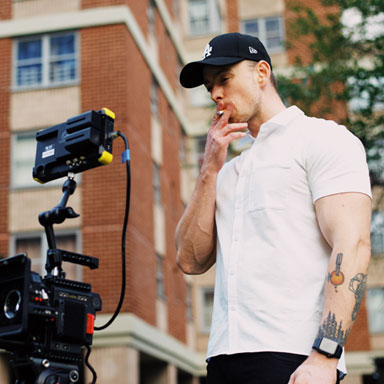VIOLET
First-time include producer Justine Bateman tosses down in excess of a couple of snares for her eponymous person in the independent movie “Violet”: She’s needs to epitomize a person whose most serious issues in a real sense work out in her mind, while battling with Bateman’s liberal utilization of wonderful on-screen text that doesn’t constantly appear to be essential, and she’s relied upon to persuade us to feel sympathy for a pretty, fruitful Hollywood chief. These aren’t simple asks, but at the same time they’re essential for the ingenuity that Bateman helpfully works on as “Violet” unspools. They likewise give star Olivia Munn the opportunity to turn in the best work of her vocation, one just invigorated by the extraordinary potential for stumbles that Bateman’s prickly content gives. Also Justin Theroux, who gives dreamlike voiceover to the hero’s self-questions, adds an extra startling aspect to her problem.
The Hollywood setting of this independent movie is accidental, however Bateman’s status as a previous high school star (“Family Ties”!) and a long-term occupant of Tinseltown adds an obvious veracity to even her most commonplace subtleties (an especially terrible party experience seems like the kind of thing drawn from reality). Be that as it may, the Hollywood setting and obscure symbols of a portion of media outlets’ world class (studio creation heads, deflect your eyes from this one, it will sting) likewise offer Bateman and Munn the opportunity to take a few fundamental punches at the whole foundation.
Generally, however, the hits remain, straightforwardly, inside Violet’s head. While she has observed accomplishment as an independent movie advancement leader at a very much respected store outfit, all the other things in her day to day existence is in confusion. Her heartfelt life is terrible, her family is the wellspring of extraordinary torment, and each move she makes originates from a low-stewing lunacy that goes through the entirety of her days. The genuine issue is that Violet’s interior discourse (which Theroux infuses with complete fear) has only terrible comments to her. The put-downs run the range, from “you’re not kidding” “you studied some unacceptable thing in school” and “you don’t recall an adequate number of individuals’ birthday events” and the perpetual cry that she’s simply “a child.”
In any case, Violet is beginning to understand that her inner voice, which she names to a stunned companion as “the advisory group,” may be off-base. Bateman takes this situation to clear finishes: Scenes of Violet are overlaid with colorful cursive intended to estimated her truly inward voice, which ponders “For what reason would I be able to simply be blissful?” and stresses that “I feel as I don’t who I am any longer.” Abrasive interstitial recordings of rot and obliteration just accentuate Violet’s aggravation, and keeping in mind that Bateman’s more flowery contacts now and then wear, Munn is so devastatingly great at selling Violet’s inner hardship that it’s not difficult to excuse Bateman’s other imaginative motivations. With a star that’s appropriate for the job, Bateman has effectively demonstrated her salt as a sharp peered toward producer in this independent movie.
When Violet understands that her experience isn’t general and that a great many people don’t have a voice chopping them down at each second (her astounded dearest companion Lila, an underused Erica Ash, conveys this news helpfully), she makes dubious strides toward transforming her. Bateman tosses in a couple of flashbacks to rationalize the wellspring of Violet’s inward “board of trustees,” and keeping in mind that some of them just reinforce clear subtleties (we know, for instance, that Violet’s family connections are terrible, a flashback to her youth simply makes that all the more plain), this independent movie shows how completely Violet’s life has been consumed by what adds up to behave destructively.
What follows in this independent movie is a postponed transitioning story, and keeping in mind that Bateman evades a few greater issues – Munn, who is half-Chinese, here plays a person who is either white or so white-passing that her race is rarely referenced – she tests profoundly into others that so seldom seek the Hollywood treatment. Violet is somebody whose whole presence, from her powerful vocation to her horrendous love life, has been coordinated by imperfect insights and malicious convictions regarding chauvinist assumptions. As Violet pushes forward to what she trusts is a superior future, Munn conveys an agile, cutting exhibition, as her aggravation generally feels grounded in genuine, quantifiable difficulties.
At especially reckless minutes for her hero, author chief Justine Bateman infuses blazing pictures of calamity, savagery and decaying creatures. The screen could go red and the score, by Los Angeles electronic-rock threesome Vum, could extend its moan. It doesn’t take long to get on to this multichannel account conspire, with its upsetting visuals and clashing voices. However, you could before long hear an extra voice – the one in your mind pondering where the personal growth genuineness leaves off and the parody starts, if by any means, and exactly what to think about Violet herself. Is it true that she is a symbolic figure or one we should fully trust?
She’s a 30-something creation leader who’s remaining with her screenwriter companion Red (Luke Bracey) in his peak midcentury spread while her downpour harmed kitchen is being fixed. His place is additionally going through redesign. That is the world we’re in, the circle of top of the line L.A. land and powerful groups of friends. (The little organization where Violet works is settled in the milestone Sowden House.) Following her internal panel’s requests, Violet tolerates the loftiness and lack of respect of individuals who actually report to her, straightforward controller Bradley (Zachary Gordon) and the oozingly snide Julie (Cassandra Cardenes). Likewise with most associations, the smell begins at the head; Violet’s supervisor is a top notch mite, played by an astoundingly hissable Dennis Boutsikaris.
In this independent movie her defensive associate, (Keith Powers), can’t comprehend the reason why she tolerates the maltreatment, yet he has barely any familiarity with the voice in her mind. On that front, Violet has trusted in just a single individual, her companion Lila (Erica Ash), and their underlying discussion with regards to this issue goes poorly. A creation creator with a solid mental self portrait (“My folks let me know I’m incredible”), Lila urges Violet to consider Red more than her quirky beloved companion. Be that as it may, despite the fact that he’s single, attractive, steady, kind and sincerely accessible – also imparting his home to her – he’s not a chief and in this way, as per Violet, not “the sort of fellow I ought to date.”
Warner Bros Studio independent movie
Yet she ends up keeping away from the calls of the studio superstar (Peter Jacobson) who might fit that bill. Something in her painstakingly kept up with mission to rise the stepping stool is breaking apart. The theoretical verse based meaningful venture she shoved aside begins reemerging (in Hollywood?!), even as she furrows ahead with the repetitively named game-based film Fireflame, and bears significant distance interruptions of scorn and envy from her sibling (Todd Stashwick) and auntie (Bonnie Bedelia) back in the Midwest.
In this independent movie it seems that Bateman might enclose her story by Hollywood shine (actually no, only one out of every odd individual exposed to Violet’s image of disgrace will get back home to Luke Bracey as her clearly lovestruck BFF), yet there’s a profound all inclusiveness to the message here. It’s made even more remarkable by Munn’s exhibition, what slices through Bateman’s sometimes fastidious twists to convey the most significant work of her vocation. “Violet” might be Bateman’s vision, yet it’s through Munn’s eyes that we see it most plainly.




